Ready to Embark on an Exciting Journey with WIN?
Take the first step toward personal and financial freedom by filling out the interest form. One of our franchise advocates will be in touch with you soon!
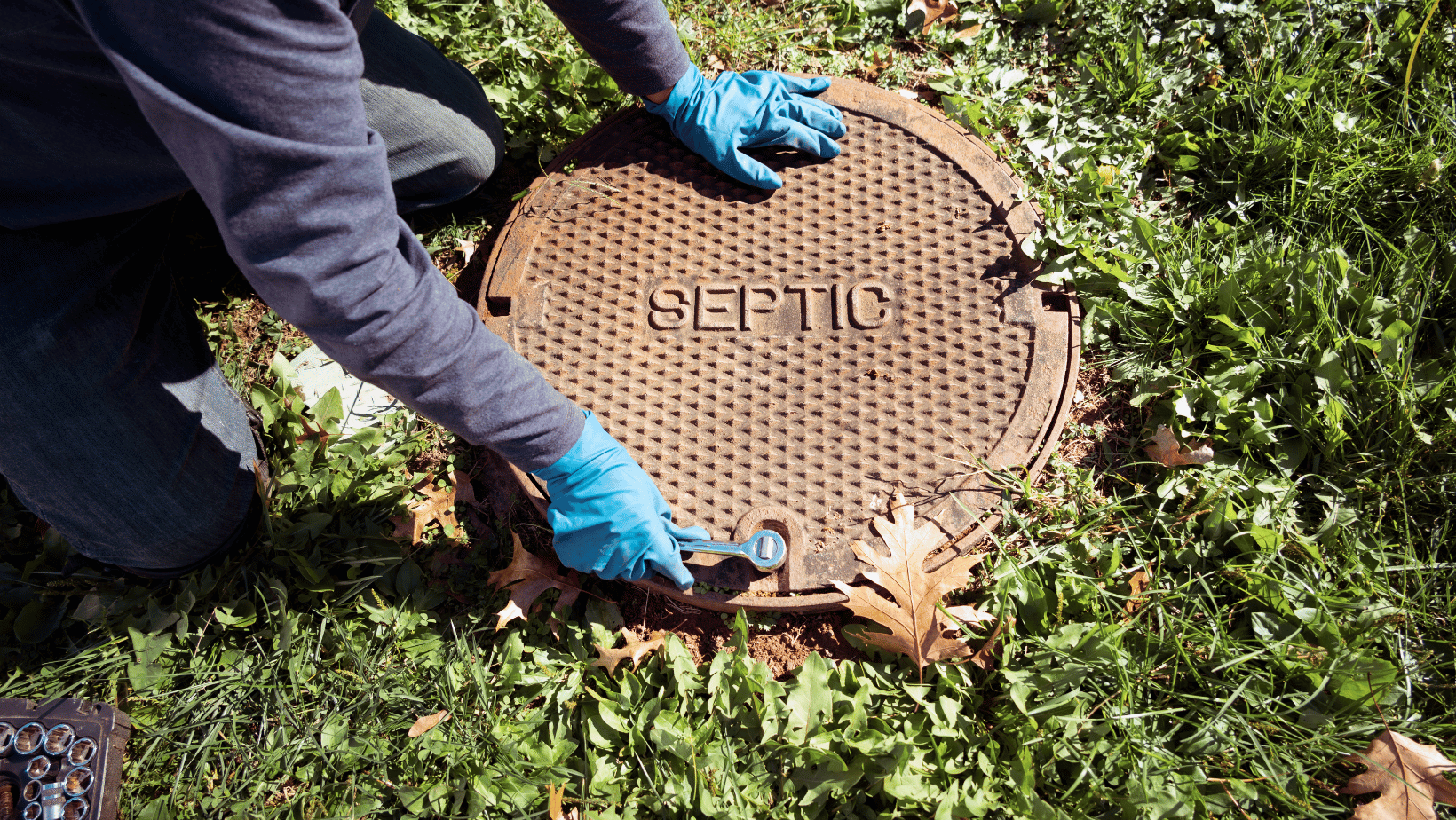
Septic inspectors play a crucial role in ensuring the proper functioning and safety of septic systems. Many homes and businesses, especially in rural areas beyond the reach of centralized sewer systems, rely on these systems to handle wastewater. Septic inspectors examine these systems to ensure they are in good working order and free of issues like backfill, which can compromise their efficiency and pose health risks to homeowners and their families. For instance, backfill can lead to sewage backups or groundwater contamination, potentially exposing residents to harmful pathogens. These systems not only prevent environmental pollution but also safeguard public health and save homeowners from expensive repairs. Not sure if a home has a septic system? Here’s a hint: if there’s no monthly sewer bill, it probably does!
The market for professional septic inspectors is growing. According to the U.S. Census Bureau, about 26 million homes (one-fourth of all homes) in America have septic systems. Septic tank inspections are more prevalent nowadays due to our increased awareness of environmental issues and higher frequency of septic system remodeling and maintenance requirements. This makes now an excellent time to consider a career as a septic inspector.
In this guide, we’ll walk you through the steps to becoming a certified septic inspector. We’ll cover the necessary education, training and certifications, along with tips on starting your own septic inspection business. Whether you’re looking for a new career path or an opportunity to expand your skills, becoming a certified septic inspector offers a rewarding and in-demand profession. You may also want to consider becoming a certified home inspector to boost your revenue streams and diversify your services, which can open more opportunities and enhance your professional growth.
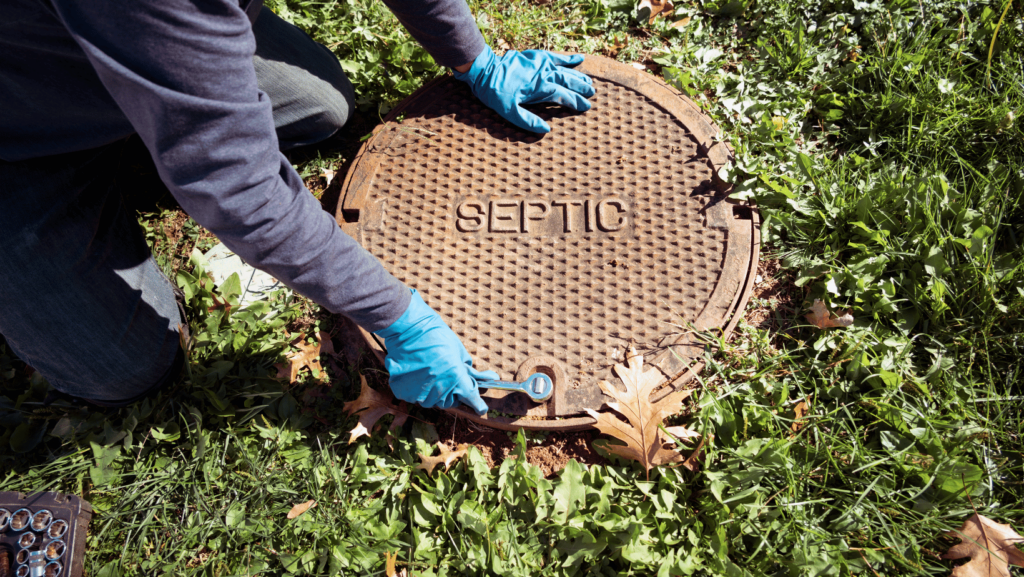
A septic inspector’s primary job is to ensure septic systems are functioning properly and comply with health and environmental regulations. These systems are responsible for treating and disposing of household and commercial wastewater in areas not connected to centralized sewer systems.
Septic inspectors conduct both residential and commercial inspections to ensure the proper functioning and safety of septic systems.
Residential inspections focus on septic systems installed in single-family homes. These inspections are often required during real estate transactions to ensure the system is in good condition before a sale. Homeowners may also request routine inspections to maintain their systems and prevent potential issues from arising later down the line. It’s important as a septic inspector to outline the risks associated with unmonitored septic systems, including possible exposure to diseases like hepatitis or dysentery.
Commercial inspections involve larger and often more complex septic systems used by businesses, schools and other institutions. These systems handle a higher volume of wastewater and may have more stringent regulatory requirements due to potential exposure to a larger group of people and liability concerns. Regular inspections help ensure these systems operate efficiently and safely, protecting public health and the environment.
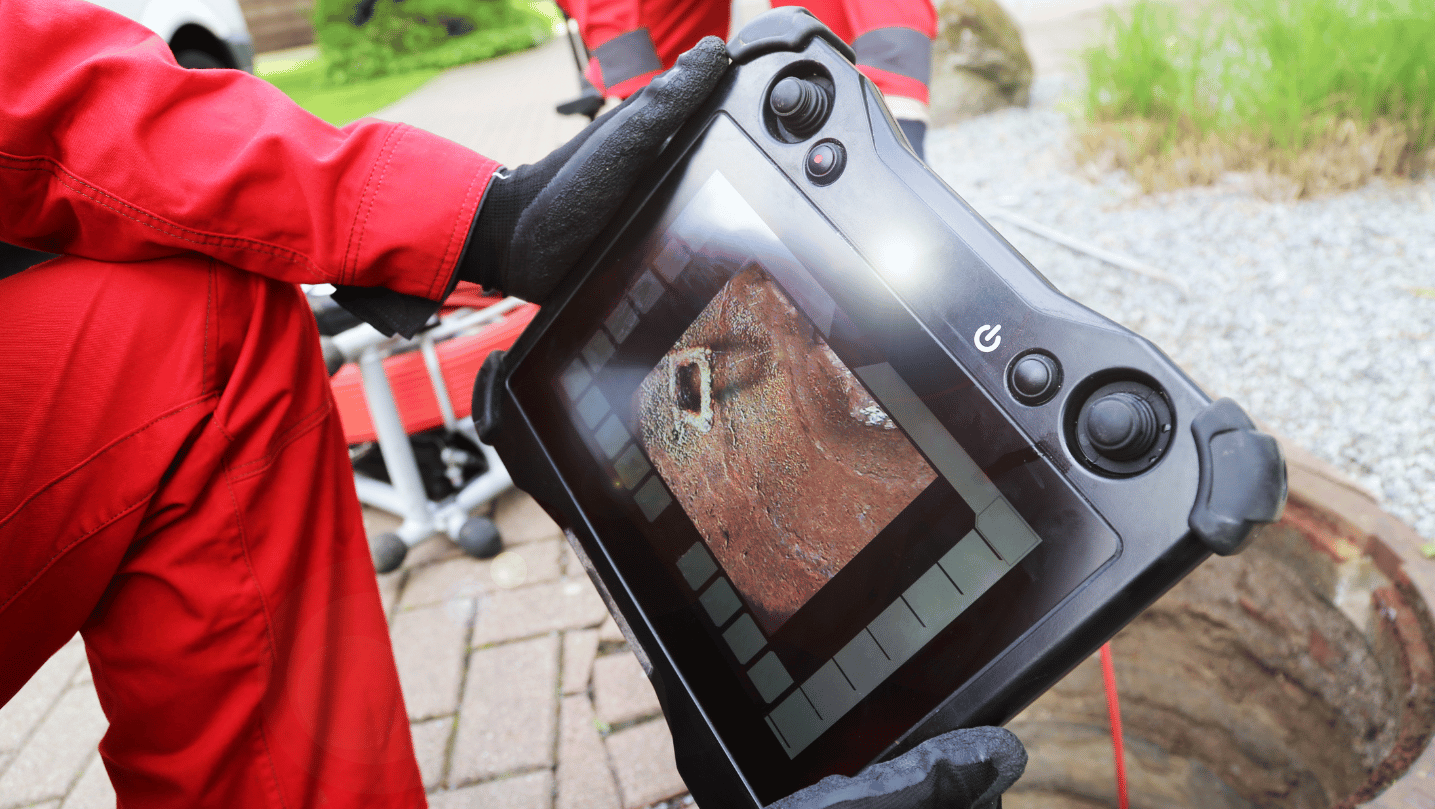
Inspectors start with a visual assessment of the septic system components, including the tank, distribution box and drain field. They look for signs of damage, leaks and other issues that could indicate a problem.
Septic inspectors conduct various tests to check the system’s performance. This can include hydraulic load tests to assess how well the system handles water flow and dye tests to detect leaks or blockages in septic systems.
Inspectors measure the levels of sludge and scum in the septic tank to determine if it needs pumping. High levels of these materials can indicate that the tank is not being maintained properly and may soon overflow, causing system failure.
Part of the inspection involves reviewing the system’s maintenance records and any previous inspection reports. This helps the inspector understand the history of the system and identify any recurring issues.
After the inspection, the septic inspector typically provides a detailed report outlining their findings. They highlight any problems and recommend necessary repairs or maintenance. This report is crucial for homeowners, business owners and potential buyers to make informed decisions about their properties.
Septic inspectors play an essential role in maintaining public health and environmental safety. By identifying and addressing issues early, they help prevent costly repairs and environmental contamination, making their work vital to communities that rely on septic systems.
Becoming a certified septic inspector doesn’t require an extensive formal education, but having a solid foundation in certain subjects can be beneficial.
The minimum educational requirement for a septic inspector is typically a high school diploma or equivalent. This provides inspectors with the foundational knowledge necessary for further training and certification.
While in high school, focusing on specific subjects can give you a head start in understanding the complexities of septic systems and their inspection. Some recommended subjects include biology, chemistry and environmental science. While not mandatory, taking courses in mathematics and physics can also be beneficial. These subjects help develop problem-solving skills and an understanding of fluid dynamics, which are useful when assessing how septic systems manage and treat wastewater.
After high school, consider enrolling in vocational training or community college courses related to plumbing, wastewater management or environmental health. These programs often offer more specialized knowledge and hands-on experience that can be directly applied to a career in septic inspection. Additional education can also propel your career beyond one trade discipline – expanding revenue streams and bringing you more value.
In addition to formal education, obtaining relevant certifications and undergoing specialized training are crucial steps in becoming a certified septic inspector. We will cover these aspects in more detail in the next section.
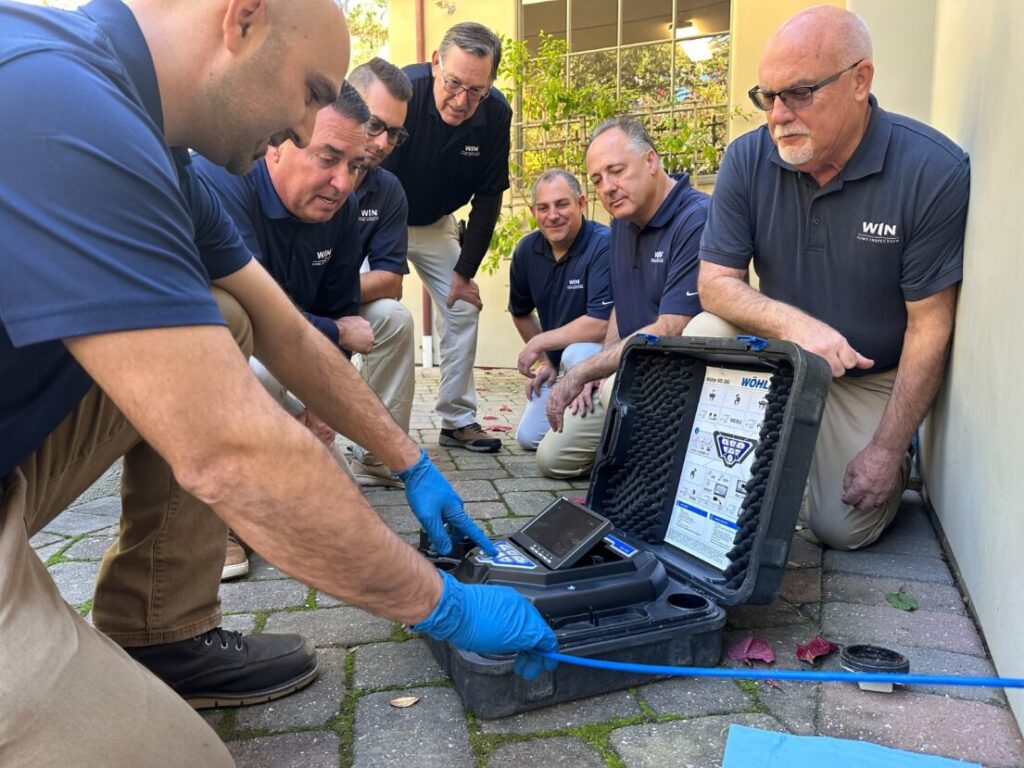
Once you have the basic educational background, the next step in becoming a certified septic inspector is to obtain the right training. This involves both formal education and practical, hands-on experience.
Online courses offer flexibility and convenience, allowing you to learn at your own pace. Many organizations and educational institutions provide online training programs specifically for septic system inspection. These courses cover topics such as septic system design, operation, maintenance and inspection techniques. Look for courses that are recognized by industry associations or regulatory bodies to ensure they meet professional standards.
Community colleges are another option, often offering certificate or associate degree programs in fields related to septic inspection, such as environmental science, wastewater management or plumbing technology. These programs provide more in-depth knowledge and practical skills through a combination of classroom instruction and lab work. Attending a community college program can also provide opportunities for networking with instructors and peers in the field.
Hands-on experience is also crucial for becoming a competent septic inspector because it allows you to apply classroom knowledge to real-world scenarios, developing practical skills and confidence. Participating in fieldwork provides valuable, on-the-job training where you can practice inspecting actual septic systems under the supervision of experienced professionals. This practical experience helps you understand the daily responsibilities of a septic inspector and offers networking opportunities, which can sometimes lead to job offers later down the line. To find internships and practical training opportunities, reach out to local septic inspection companies, environmental agencies or industry associations.
WIN Home Inspection also offers training with currently certified inspectors, depending on where you live. Contact your local WIN Home Inspector directly for more information or consider reaching out to our corporate office. WIN also offers over 35 different services, from mold and radon testing to air quality assessments and thermal imaging. This extensive range not only enhances your skills but also diversifies your revenue streams, catering to various client needs and maximizing your business potential. You’ll be equipped with the knowledge and tools to succeed in the dynamic field of home inspection, supported by a large team to guide you.
Becoming a certified septic inspector not only validates your skills and knowledge but also enhances your credibility and employability in the field.
Several organizations offer certification programs for septic inspectors. One of the most recognized is the National Association of Wastewater Technicians (NAWT). Other notable bodies include state and local regulatory agencies and industry-specific organizations, like InterNACHI. Choosing a certification from a reputable body ensures that the credential is widely recognized and respected.
Below are the necessary steps to get a license:
Before pursuing certification, ensure you have the necessary educational background and training. This typically includes a high school diploma or GED and completion of relevant courses or training programs. Hands-on experience through internships or practical training is also essential.
Research different certification bodies to find a program that suits your needs. The NAWT, for example, offers a comprehensive certification program that includes both classroom instruction and practical training. Make sure the program is accredited and recognized in your area.
Each certification program has specific eligibility requirements. These may include a minimum amount of work experience, completion of certain training courses and passing an exam. Review the requirements for your chosen certification program to ensure you qualify.
Enroll in the certification course offered by the chosen body. These courses typically cover topics such as septic system design, inspection techniques, maintenance, and regulatory requirements. Courses may be available online, in-person, or as a combination of both.
Successfully complete the training program, which includes both theoretical and practical components. This may involve attending workshops, participating in fieldwork, and passing quizzes or assessments throughout the course.
After completing the training program, you’ll need to pass a certification exam. The exam tests your knowledge of septic system inspection, including the identification of system components, understanding of regulatory standards, and practical inspection skills. Study guides and practice exams are often available to help you prepare.
Once certified, you’ll need to maintain your certification by meeting continuing education requirements and renewing your certification periodically. This ensures you stay updated on the latest industry practices and regulatory changes. Certification bodies like NAWT often provide ongoing education opportunities to help you fulfill these requirements.
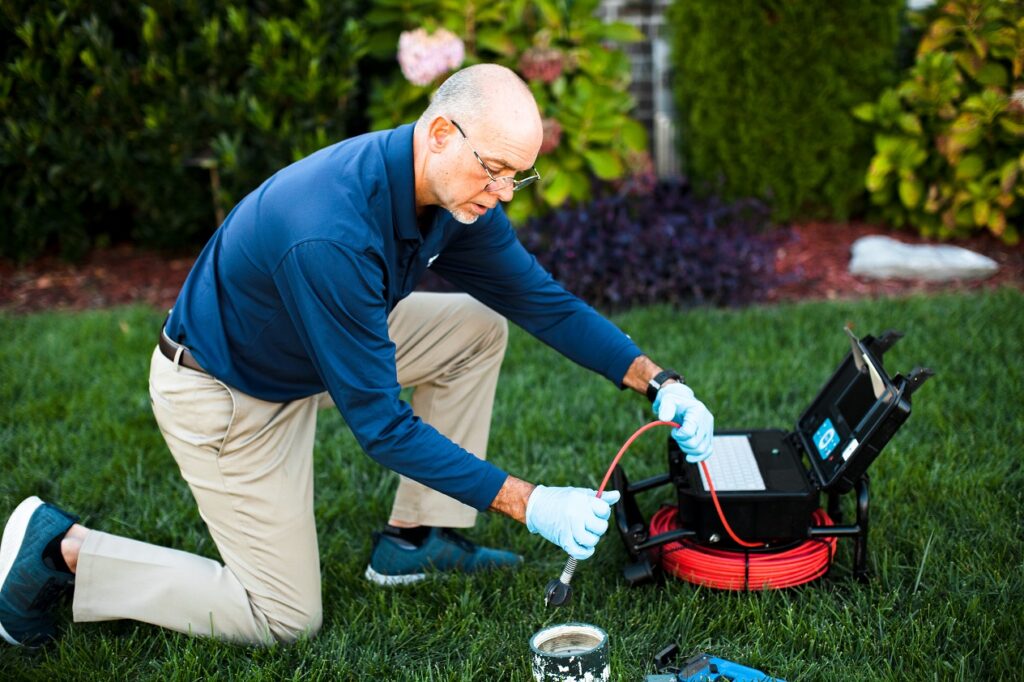
Starting a septic inspection business can be a rewarding entrepreneurial venture. By following these steps, you can establish a successful business that serves your community and meets a growing demand for septic system inspections.
A solid business plan is essential for the success of any new business. It serves as a roadmap for your venture and helps you stay focused on your goals. Your business plan should include several key components to ensure a comprehensive and effective strategy. Start with an Executive Summary, which provides a brief overview of your business, including the mission statement and objectives. Next, conduct a Market Analysis to research the demand for septic inspection services in your area, understand your competition, and identify your target market.
Clearly outline the services offered by providing a detailed description of the services you will provide, such as residential and commercial inspections. Develop a Marketing Strategy that details how you will attract and retain clients. Additionally, include Financial Projections that estimate your startup costs, operating expenses and projected income.
Finally, create an Operations Plan that outlines how you will run your business, covering aspects such as staffing, equipment and processes.
To operate legally and protect your business, you need to check with your local government to determine the specific licenses required for a septic inspection business. Ensure you and your staff have the necessary certifications, such as those from the National Association of Wastewater Technicians (NAWT) specific to the septic inspection industry. Purchasing liability insurance to protect your business from potential claims is another important step. Consider additional coverage like workers’ compensation if you have employees or are looking to expand within the next year or two.
Investing in the necessary equipment and supplies for conducting septic inspections is crucial for providing accurate and professional services. This includes inspection cameras, septic tank probes, sludge measuring tools, protective gear, and reporting software. Ensure that all your equipment is reliable and meets industry standards to maintain the quality and credibility of your services.
Effective marketing is crucial for attracting clients and building your business. One key strategy is establishing a strong online presence. Create a professional website that outlines your services, provides contact information, and features customer testimonials. Utilize search engine optimization (SEO) to improve your online visibility. Social media platforms like Facebook, Instagram, and LinkedIn are also valuable tools for promoting your services, sharing industry tips, and engaging with potential clients.
WIN supports your marketing efforts with an in-house team dedicated to helping you succeed. Franchise owners can turn to the largest support team in the industry for end-to-end marketing support, including personalized materials and strategic digital strategies that enhance your visibility in your community and help you grow your business. This diversified team of marketing experts provides the strategic guidance you need to navigate the complex world of marketing, offering cutting-edge techniques and data-driven insights that can transform your business. By partnering with WIN, you ensure that your marketing efforts are not just effective, but also optimized for maximum impact, helping you stand out among the competition.
Networking is another essential component of your marketing strategy. Join local business associations, attend industry conferences, and participate in community events to connect with potential clients and partners. Additionally, consider targeted advertising in local newspapers, magazines, and online platforms. Offering special promotions can further attract new customers and boost your business.
Building a strong client base is essential for the growth and sustainability of your business. Start by providing excellent service to encourage repeat business and referrals. Happy clients are more likely to recommend your services to others. Additionally, don’t hesitate to ask satisfied clients to refer your services to their friends, family, and colleagues. Forming partnerships with real estate agents can also be beneficial, as they can refer your services to homebuyers and sellers. Offering maintenance programs that encourage regular inspections and provide ongoing value to your clients is another effective strategy.
Efficient business management is key to long-term success. Implement systems and processes to streamline operations, such as client management software to manage appointments, track inspections and maintain client records. Additionally, keep accurate records of your income and expenses, and use accounting software to manage your finances effectively. Continuous improvement is also crucial; stay updated on industry trends and regulations and invest in ongoing training and certification to enhance your skills and services.

Starting a septic inspection business on your own can be challenging, but leveraging established networks can provide a significant advantage. One effective way to do this is by joining a reputable franchise like WIN Home Inspection.
Joining a franchise offers several benefits that can significantly enhance your chances of success in business. One key advantage is the access to an established and trusted brand name, which can help you build your client base more quickly and effectively. Clients are more likely to trust and choose a well-known brand, giving your business a significant boost from the outset.
Finally, joining a franchise means becoming part of a network of experienced business owners who can offer advice, share best practices, and provide mentorship. This network can be a valuable resource as you establish and grow your business, helping you avoid common pitfalls and capitalize on opportunities more effectively.
If you’re interested in leveraging these benefits, consider joining WIN Home Inspection and reaching out to learn more about their franchise opportunities. By leveraging established networks like WIN Home Inspection, you can overcome many of the challenges faced by new business owners and set your septic inspection business up for long-term success. For more details, please fill out the interest form today.